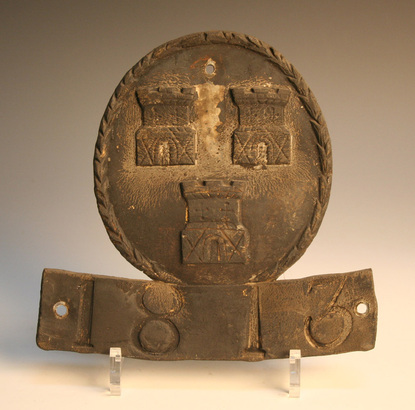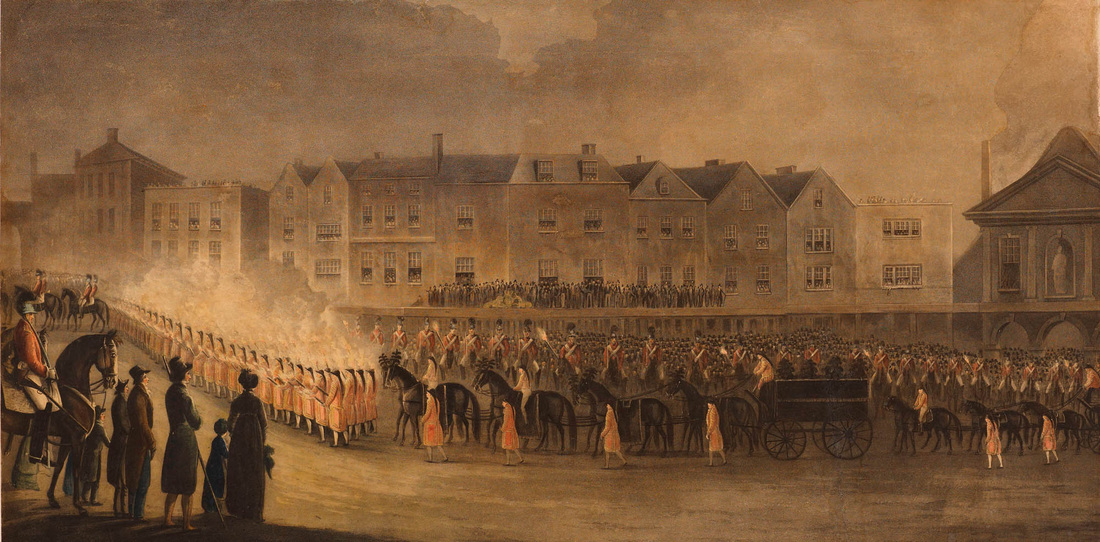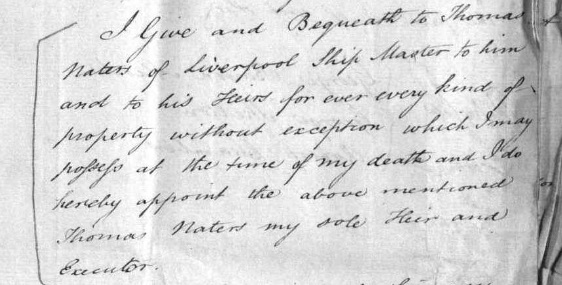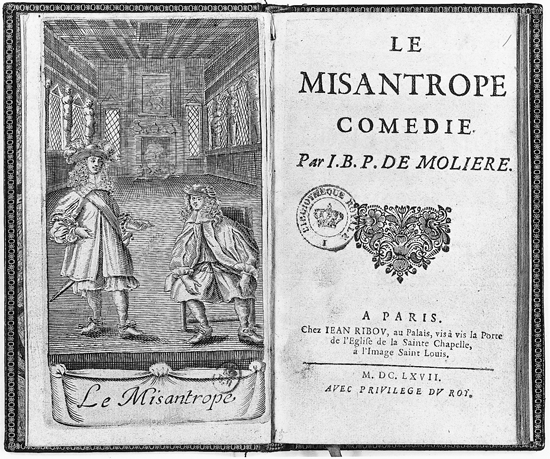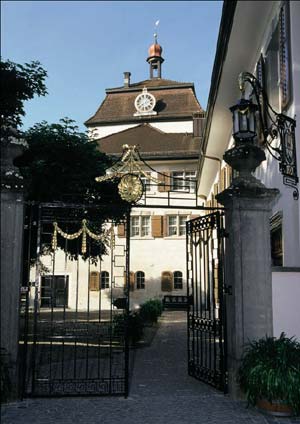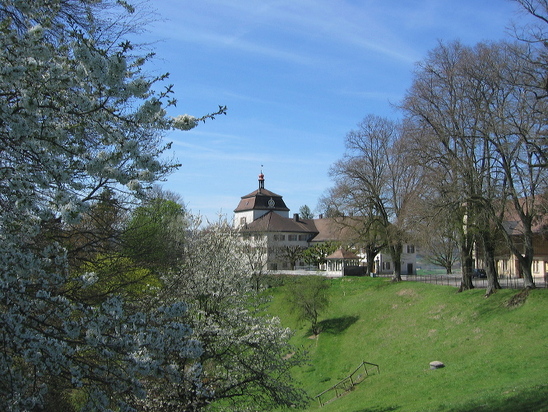IntroductionContinued from last month’s post.. Following the death of Thomas Adams, notary of Alnwick in 1813, the Eshott Estate and the bulk of his wealth passed to his brother Alexander, a very rich man in his own right and owner of the Acton Estate near Felton. What happened to this immense combined fortune from this point left a paper trail that traversed the globe before landing in the hands of a supposed completely unrelated builder of Newcastle upon Tyne by the name of William Mather. Instrumental to this story is an extraordinary gentleman by the name of Thomas Naters, an international man of mystery indeed! Alexander AdamsAlexander was the third of five sons born to Benjamin Adams of Acton and his wife Elizabeth Collingwood, christened at Felton in August 1735. He is reputed to have amassed a fortune as an East India Merchant and in addition to which in November 1783 he was a founder member and director of the “Newcastle Fire Office” The Company provided insurance for buildings, houses and goods against damage from fire, at the time was believed to be the first outside London. The list of the original twenty one partners in the venture contains some other notable names such as Clavering, Ridley, Brandling and Surtees to name but a few. The company nowadays forms part of the “Aviva” insurance company and records from 1783 to 1822 are held within their archives. Further information can be read here:- http://www.aviva.com/about-us/heritage/companies/newcastle-upon-tyne-fire-office/ At the time of his death Alexander was in possession of considerable land holdings having purchased the estate of Espley (also in 1783), in addition to those of Acton and Eshott inherited from his brothers. They had all predeceased him, without issue at the time of his death on 29th March 1817. Alexander on the other hand, although unmarried had a natural son William, an assistant surgeon to the East India Company in Bengal at the time of his father’s death, and who was to be his main beneficiary. An account of the funeral procession of Alexander Adams is recounted in the Durham County Advertiser on 12 April 1817:- “On Tuesday morning last the remains of the late highly respected Alexander Adams Esq of Newcastle, and of Acton, in Northumberland were conveyed from his house in Northumberland Street, in Newcastle, in a hearse with six horses, attended by relations and several private friends. In three mourning coaches, with four horses each, and a great number of gentleman’s carriages, and were interred at the family burial vault in Felton church. Before the procession arrived at Felton, it was met by several carriages from Alnwick, with the relations and private friends from that part of the country, and also by the numerous and respectable tenantry of the deceased. An immense concourse of persons were assembled in the church upon the occasion.” A spectacle to behold I am sure, but no quite as grand as th at of Princess Charlotte who died later the same year. Where there's a WillAlexander Adams left generous bequests to several of his servants, £1,000 to Barbara Carter named as the mother of his son and the remainder to William himself. William departed the UK to take up his position in Bengal in 1806 but not before he in turn had written his own informal Will. In it his intentions are most clear:- From available evidence William’s relationship with his father was far from a happy one. Correspondence between the two contain threats of disinheritance and in a letter from William to Thomas Naters, dated 1817, in which he addresses Thomas as “Dear Cousin”, William refers to his father as a “vile wretch”!, a far cry from the highly respected gentleman referred to in the press. William opens his letter by reprimanding Thomas for not returning his correspondence for many years, before telling him, as he is not in the best of health he has reaffirmed his will of 1806. The Will in which he, Thomas Naters, was named the sole heir and executor with an additional codicil regarding an annuity to be paid to his mother along with small bequests to her female servants. William alas did not live long enough to enjoy his fortune and died in Calcutta on 24th October 1818 aged just 40. His estate was to pass to Thomas, but where was he?, and more to the point who on earth was he? In the meantime back in Newcastle, William’s mother Barbara Carter wrote her own will dated 26th October 1818 in which she also names “Thomas Naters, Mariner of Liverpool” as the beneficiary of the balance of her estate after bequests to her servant Phoebe Robinson and her two executors. In a codicil dated 2nd Nov of the same year she adds the names of members of the Mather family, leaving them ten pounds each to buy mourning clothes, a legacy of £50 to Miss Mary Mather daughter of Thomas Mather, Shoemaker of Newcastle. At no time does she make mention of her son William (surely she could not have heard of her son’s death in Calcutta within 2days?) or any members of the Carter family. As Barbara fails to state the familial relationship to the Mathers named in the codicil to her will or to Thomas Naters himself, it is impossible to know how they fit in, or indeed if they are related at all. It would appear that as Thomas Naters is her main beneficiary he is closest in kin, but again I can find no concrete evidence to support this. A belief widely held and reported in the press at the time is that he was the son of her sister, and was himself illegitimate! An International Man of MysteryBefore William’s Will could be proved Mr Naters needed to be found. A period of some 18 months lapsed and a great deal of trans-Atlantic correspondence was exchanged before Thomas was finally traced via an agent in New York to Quebec, described as a Master Mariner and ship owner formerly of Liverpool. The Will of William Adams was finally proved in Durham on 13th March 1820 Preparing himself for future eventualities Thomas wrote his own Will whilst in residing in Newtown, Long Island, New York in 1822, where one obituary states he had built a fine residence. In it he named William Mather, son of Joseph and Mary Mather of Newcastle upon Tyne as his sole heir and executor. Surely this is the one and the same William Mather left £10 for mourning by Barbara Carter in her will of 1818, to which Thomas Naters was primary beneficiary? Wishing to escape from the public attention his controversial inheritance had attracted and as stated in the in American press of the day:- “The possession of so much wealth deprived him of repose and peace of mind – and being beset by various charitable and religious institutions he squandered his wealth according to his whims rather than the exercise of any good judgement. He became weary and disgusted, and without taking leave of his friends, suddenly departed for Europe. His intention was to find some solitary abode where he might conceal himself and his riches from mankind, for he had become a complete misanthrope” After a period of wandering, in 1823 Thomas purchased the “Schloss Goldenberg” near Zurich in Switzerland whence he retired changing his name to Jacob von Matter. Living as a recluse and despite being referred to as a “man hater” he continued to dole out his fortune on all those around him. This brought him under the scrutiny of the Swiss authorities who persuaded him his benevolence would be best managed by them. Naters agreed to deposit a sum annually which was duly distributed to public libraries, deaf and blind schools etc. As well as many donations made within Switzerland, his name regularly appears as a benefactor of charitable causes in the British Press, particularly those based in and around Newcastle, to which town he is often described as a native. In 1828 Naters wrote to the Swiss authorities informing them of his true identity, requesting to be recognised by both names. The Government agreed and in March 1831 in recognition of his charitable donations conferred on Thomas the right of Naturalisation, together with all its perks. He passed away at his Schloss in October 1836 at the age of 70. (This would give him a potential birth year of 1776, so a contemporary and two years the senior of William Adams his benefactor.) The Tax Bill from HellThe fortune and the Schloss in Switzerland inherited by William Mather, now a builder of Blackett Street Newcastle was widely reported in newspapers worldwide and was reputed to be of the value of in the region of £250,000, which equates in today as in excess of £11 million. (The entry in the probate records state a rather more modest sum of £120,000, a mere £5.2 million!) The Swiss Government however, were loath to part with the money and demanded payment of £50,000 by way of inheritance tax. The British Government fought back and by proving that Jacob von Mater, or Thomas Naters was in fact a British national and not Swiss, the bill was reduced to £12,000. The Big QuestionWas this inheritance really such a surprise to William Mather?, and was there any blood link between him and his benefactor? A quick recap and look at the facts reveals
All in all a most unusual naming pattern if his subsequent benefactor was neither unknown nor unrelated to him! ConclusionBeing such an unusual and in some ways romantic tale it attracted much attention over the ensuing years and was widely recounted. Many of the facts regarding Thomas Naters are reiterated throughout, and documentary evidence exists to support them, but details such as his place of birth, his relationship to William Adams MD and indeed to William Mather above remain open to much speculation:- Was Thomas Naters cousin or just a friend to William Adams? Was William Adams related to William Mather, hence the bequest by Thomas to a relative of his initial benefactor? Were they all related?, and was Barbara Carter the common denominator? This post probably ask more questions than it answers but as they say on the X Files “The truth is out there”, I just wish I could find it! End NotesAfter a lot of legal wrangling the estates of Acton, Eshott etc., were inherited by other members of the Adams family being the legitimate heirs and nephews of Alexander Adams, so did not form part of the estate of Thomas Naters.
William Mather and his heirs (his line died out with his sons) were closely associated with the estate of Longridge, near Berwick, but again that is a story in its own right so has not been covered here.
5 Comments
29/10/2014 11:05:42 pm
What a super post, Susie! Your blog gains in interest and variety with every offering and your presentation is excellent, wonderful illustrations included. Mole
Reply
30/10/2014 02:15:57 am
What an interesting and intriguing story! A really great read.
Reply
shirley Ann mather
2/9/2019 11:14:51 am
very good read my dad frank mather was from Newcastle
Reply
22/3/2020 06:09:19 pm
The Mathers were almost all land/property owning who left wills, so they were hardly short of a penny or two, but not used to this sort of money. I am descended from Joseph Mather's uncle (ie William Mather's great-uncle) - so not a close relationship - but I enjoyed the story and will probably try to look for a link.
Reply
Helen Graham
25/1/2022 02:39:46 pm
This is a fascinating story - I came across it while researching the story of the building of Longridge as there is some mysterious connection with my family and a lot of wealth made in America. Do you know anything about the building of Longridge, or perhaps where I could find out more?
Reply
Leave a Reply. |
AuthorSusie Douglas Archives
August 2022
Categories |
Copyright © 2013 Borders Ancestry
Borders Ancestry is registered with the Information Commissioner's Office No ZA226102 https://ico.org.uk. Read our Privacy Policy
